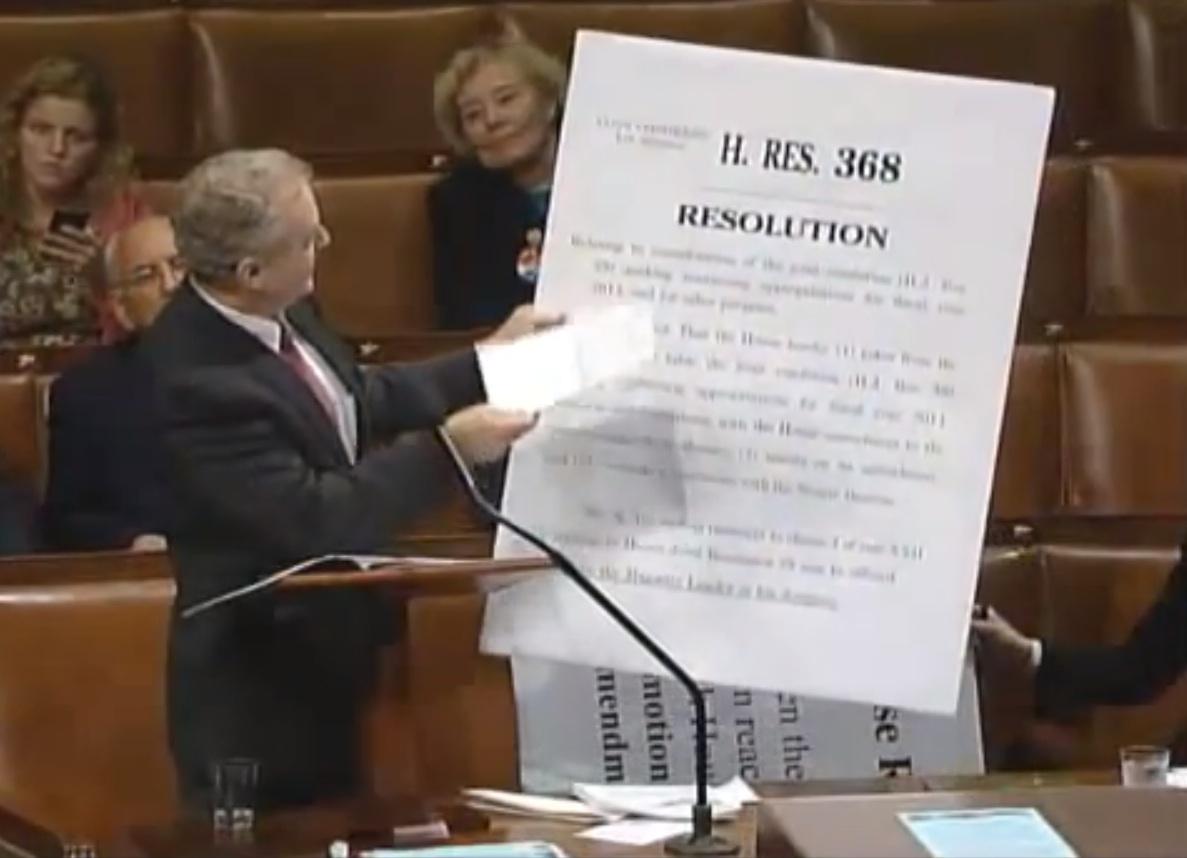On Friday, as Republicans held their umpteenth meeting on how to move forward in shutdown negotiations, House Democrats staged the dramatic release of their discharge petition. That petition, if signed by every Democrat and 18 Republicans, could lead to a “clean” continuing resolution coming to the floor. Lots of news outlets have reported that this is theoretically possible, based on what Republicans have been saying; I’ve been trying to point out that these Republicans don’t actually plan to add their John Hancocks to the Democratic bill.
Over the weekend, House Democrats started 1) wearing buttons that denoted them as proud discharge-petitioners and 2) pushing out fresh video of a confrontation between Democratic Rep. Chris Van Hollen, ranking member of the Budget Committee, and Rep. Jason Chaffetz, who was at that point presiding. Through a series of leading questions, Van Hollen got Chaffetz to admit that the rules set at the start of the shutdown debate prevented any bill from coming up unless the majority leader supported it. “Democracy’s been suspended, Mr. Speaker!” thundered Van Hollen. (Seriously, watch the video if only to hear some Democrat utter an off-mic “Jesus Christ!”)
The clip quickly went viral; liberal websites assigned headlines like “Republicans Changed the Rules of Congress to Force a Shutdown.” It sounded too good to be true. But it wasn’t. Yes, the Republicans changed that rule. Under one rule that’s rarely used, if the Senate rejects going to conference (as it has here, with Republicans and Democrats both voting down the request), any member of the House may move to just concur with the Senate’s amendment. The majority party, on the House Rules Committee, tweaked the rule to reserve that power for Eric Cantor (or a designee—probably not Chris Van Hollen). Ask Republicans why, and they’ll explain that it’s no different from what Nancy Pelosi used to do when votes got tough and Republicans might have been able to force a vote she didn’t want.
“The House acted in good faith to open up negotiations with Senate Democrats but Majority Leader Harry Reid dismissed the idea of bipartisan talks,” said Doug Andres, a spokesman for Republicans on the Rules Committee. “That partisan refusal to negotiate should not be rewarded with control of the House floor. The easiest way to settle this is for both sides to sit down and finally talk.”
